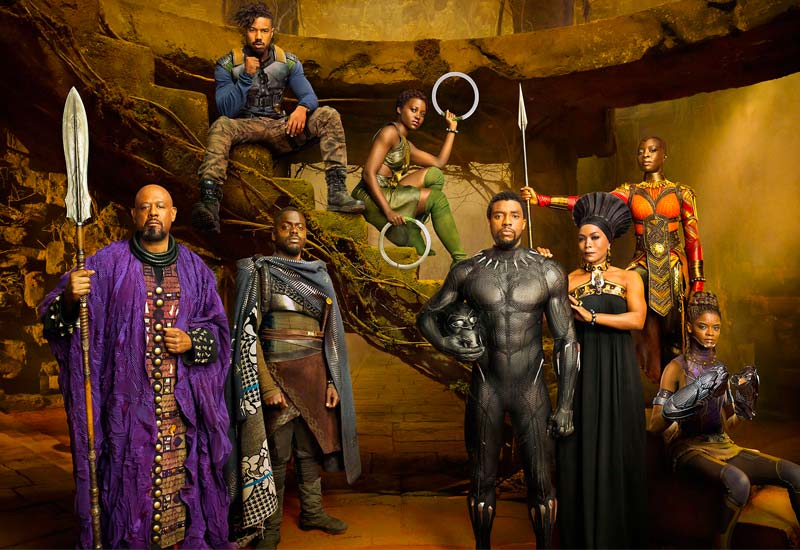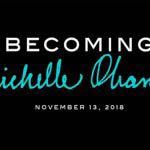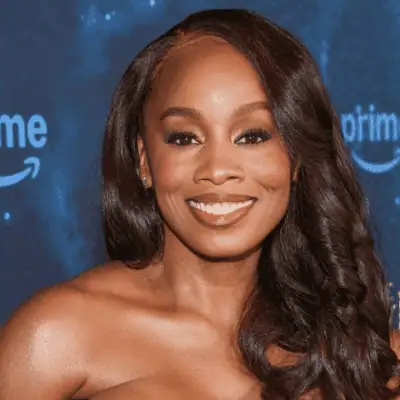
Erik Killmonger is not a villain and Black Panther is not just a superhero movie; it’s an Afrofuturistic exploration of pain and pride that both bridges and complicates the black persons and peoples of the Diaspora. It is a contemporary artistic expression of Pan-Africanism that challenges us to consider/reconcile/accept the lived experiences of our individual and collective joys and traumas. It is a rally cry for radical love amongst skin-folk.
A profound mix of respect, pride, and communal consciousness, this radical love set the tone of the film. This unique blend is evidenced in the complex mix of American rap and traditional music from the motherland to the bright ancestrally inspired costumes laced with the latest technological advances in vibranium. We witness the manifestation of radical love in the characters. Princess Shuri is encouraged to be her witty, fashionable self as she explores her intellectual penchant for all things digital, contributing to the lives of her fellow citizens with her inventions. Nakia’s desire to extend Wakanda’s freedom beyond its borders leads her to choose her purpose over a romantic relationship with T’Challa, who while yet pining, respects her decision and her path.
This beautifully complex radical love is most stunningly illustrated with T’Challa’s visit to the ancestral spiritual plain. It is a visual delight of starry purple skies, majestic panthers, and warm soil. T’Challa, the newly crowned king, embraces his father and they shed tears while engaging in an emotional and intimate conversation about life, loss, and responsibility. This scene further solidifies Wakanda as a place where the people and the land live not in a superficial, happy-go-lucky harmony, but with an interconnectedness that grounds them. This radical love, this ancestral homeland is stripped and perpetually denied to one of its own, Erik Killmonger.
Discovering the body of his murdered father coupled with his abandonment by his extended family, Killmonger’s pain is tangible He exists in a space where blackness is oppressed, devalued, and destroyed. It is through this absence of radical love that we understand Killmonger not as a villain but a tragic character to be pitied and not scorned. Killmonger is not just some superficial foreigner with a grudge looking to enact revenge. His mission goes beyond his desire to avenge his father’s death, but rather to eliminate the suffering he endured as a fatherless, poverty-stricken, black boy in a white supremacist empire. He is determined to gain control of vibranium and ship weapons across the world so black persons everywhere can live in the freedom known to Wakandan citizens for centuries.
Ultimately, as explained by T’Challa, Killmonger is a monster of the black nation’s own making. And it is only through the violent and ruthless expression of Killmonger’s self-realized calling that T’Challa is forced to reconsider his responsibility as a king. Moviegoers are encouraged to align themselves with T’Challa and the compassion he has for his estranged cousin. However, while we are expected to accept Killmonger’s pain and agree with his philosophy we are called to question his method for liberation. His strategy to weaponize disenfranchised black persons and extend Wakanda’s empire can be interpreted as the quintessential definition of revolutionary action; this impetus to paint Killmonger as the black revolutionary in the film is problematic in that it pigeonholes us into subscribing to a myopic understanding of revolutionary action, one that is almost always predicated with intense violence. Killmonger is not a villain, but nor is he the sole revolutionary. I am not interested in using the review to profess or proselytize nonviolence. Enslaved black persons used brutal force to overthrow French colonial powers to liberate themselves from their wretched conditions and formed present-day Haiti. However, it is important that we understand the monumental nature of T’Challa’s decision to turn away from centuries old tradition to extend Wakanda’s resources to black persons across the globe. With T’Challa acting as one example of many, it is important to understand that revolutionary action has numerous forms and radical love is one of them.





